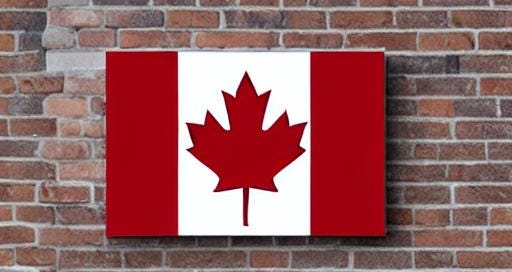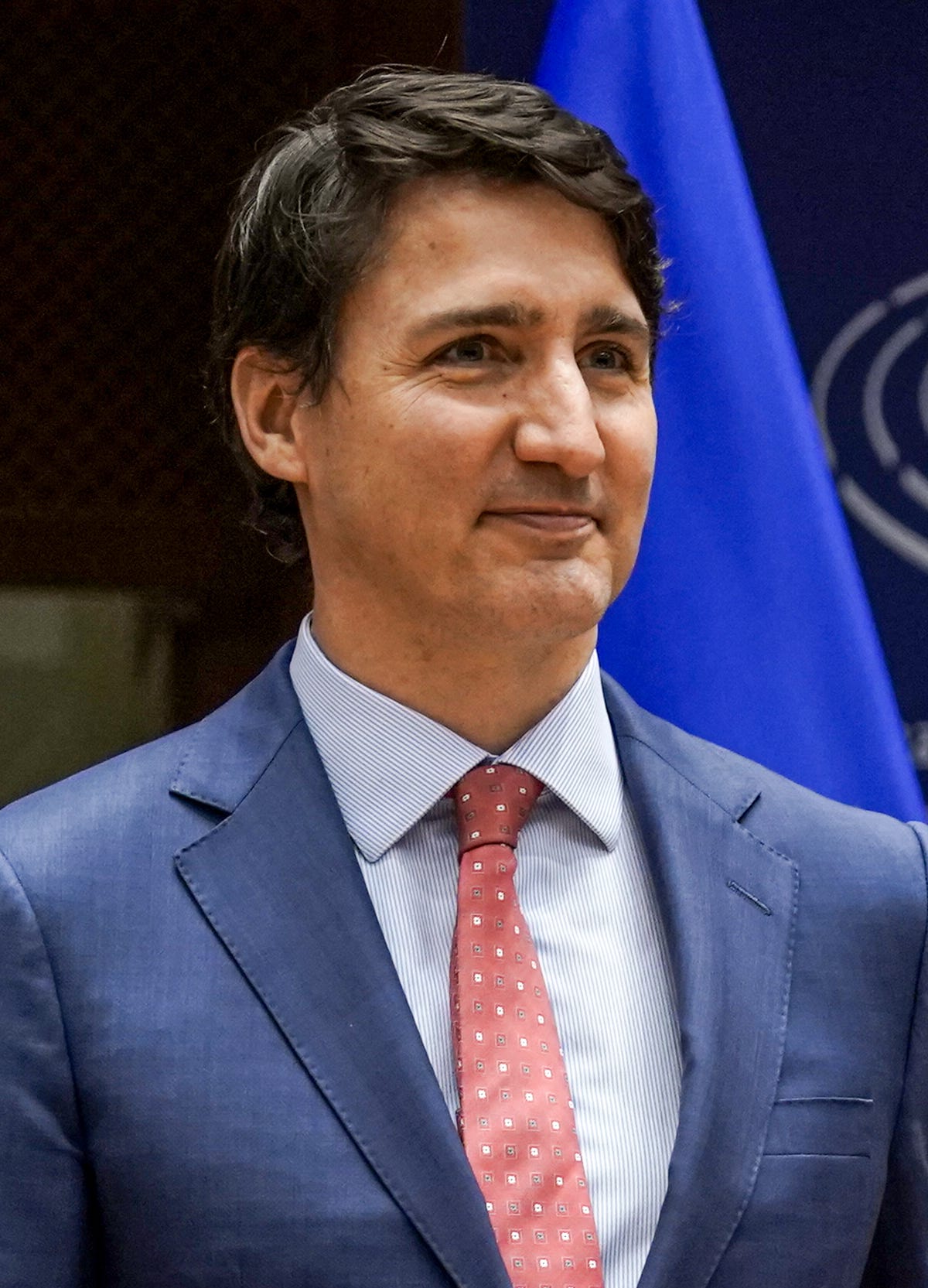Narration: Rahul Majumdar
Adapted from text originally published: July 14, 2023
The federal Official Languages Act update and the associated acts and amendments included in Bill C-13 are so far-reaching and perverse, they demand a fuller discussion than what has been offered to date by a compliant mainstream media.
As a result, I have created a four-part series, each with distinct themes. The theme of Part 3, Justin Trudeau: Quebec Nationalism’s Most Effective Federal Asset? is a cautionary tale of how illusionary, image-driven politics can come back to haunt you.
Justin Trudeau: Quebec Nationalism’s Most Effective Federal Asset?
Photo: Prime Minister Justin Trudeau addressing Members of the European Parliament (MEPs), March 22, 2022 Credit: European Parliament from EU, CC BY 2.0, via Wikimedia Commons.
For some, the thought of Pierre Elliott Trudeau’s son being responsible for compromising the individual rights, constitutional protections, and language guarantees of the English-speaking community of Quebec is both disturbing and hurtful. After all, The Right Honourable Justin Trudeau – Canada’s 23rd Prime Minister – is himself the product of a bilingual, bicultural upbringing in Ottawa, Montreal and Vancouver, with all the trappings of his self-described privileged cosmopolitan lifestyle – both prior to and during his political career.
So, what gives? Trudeau’s comments against Quebec nationalism in 2006 – over two years before his formal entry into politics - stand in stark contrast to the letter and spirit of Bill C-13, assented to on June 20, 2023. Back then, he categorized nationalism as an "old idea from the 19th century" that’s irrelevant in modern Quebec. In addition:
“Nationalism is based on a smallness of thought, (It) builds up barriers between peoples, that has nothing to do with the Canada we should be building.”
~ Justin Trudeau, from a CTV Canada AM interview on October 26, 2006 to promote the book, Citizen of the World: The Life of Pierre Elliott Trudeau.
Another quote from the same October, 2006 CTV Canada AM interview:
"Unfortunately, some people these days are wrapped up in this idea of nation for Quebec, which stands against everything my father ever believed. We need to start looking forward."
So, who’s the real Justin Trudeau, and what does he truly believe about the place of the English-speaking community of Quebec in 21st century Canada?
Timeline of Trudeau’s Descent Towards C-13
A public figure’s statements can often be twisted, taken out of context to suit a particular agenda. However, in the case of Prime Minister Trudeau and Quebec nationalism, the shift in perspective has occurred over a 15-year period – enough time for both political friend and foe to draw reasonable conclusions about where he really stands.
Given the debate surrounding Bill 96, An Act respecting French, the official and common language of Québec and his own Official Languages Act update bills (first Bill C-32, an Act for the Substantive Equality of French and English and the Strengthening of the Official Languages Act, followed by C-13) over the past two plus years, can there be any doubt where Mr. Trudeau stands? Consider the following:
Weekend of February 11-12, 2012: Justin Trudeau, representing the Montreal riding of Papineau since 2008, said that he would support Quebec separatism under certain circumstances. For example, the repeal of abortion rights, same-sex marriage rights, and the reinstatement of capital punishment in Canada, even though the Stephen Harper Conservative government at the time wasn’t proposing any of these options.
August 4 – October 19, 2015 (Federal election campaign): Trudeau – leader of the third-place Liberals at the time – ridicules then New Democratic Party Leader Tom Mulcair for their dangerous Sherbrooke Declaration as it related to Quebec independence. However, he also echoes former Liberal Leader Stephane Dion’s description of Bill 101 as a great Canadian law;
August 2, 2016: Justin Trudeau’s article in The Globe and Mail entitled, “Why Canada has a new way to choose Supreme Court judges”, with the first mention of a mandatory functional bilingualism requirement for Supreme Court of Canada judges.
January 2017: At a Sherbrooke, Quebec town hall meeting, Trudeau answered all questions in French, despite receiving several questions in English, including one related to English access to mental health services. On at least one occasion, he referred to Quebec as a French province.
Early 2019 to Late 2020: Trudeau embraces an unholy alliance with Quebec Premier François Legault’s newly elected, autonomiste CAQ government shortly after its October 1, 2018 victory over the Quebec Liberal Party. Laying the groundwork to compromise both symmetrical official bilingualism, and symmetrical Canadian federalism by supporting the concept of Quebec as a nation.
February, 2021: Release of ENGLISH AND FRENCH: Towards A Substantive Equality of Official Languages in Canada, a white paper preceding the first Official Languages Act update attempt, C-32, and eventually C-13. The federal Liberal-CAQ alliance on language is consummated, and all other federal parties in the House of Commons readily sign onto the new language model.
June 16, 2021: Trudeau and 280 other MPs vote in favour of Bloc Québécois leader Yves-François Blanchet’s horrific motion, Amendment to section 45 of the Constitution and Quebec, a French-speaking nation:
That the House agree that section 45 of the Constitution Act, 1982, grants Quebec and the provinces exclusive jurisdiction to amend their respective constitutions and acknowledge the will of Quebec to enshrine in its constitution that Quebeckers form a nation, that French is the only official language of Quebec and that it is also the common language of the Quebec nation.
Note that Marc Garneau, former MP for Notre Dame de Grâce-Westmount lauded for his “Hill to die on” stance on English minority rights before resigning his seat in March 2023, voted for this Bloc motion.
Parallels Between C-13, Bill 96
Both the Honourable Mélanie Joly, as Minister of Canadian Heritage and related portfolios, and the Honourable Sonia Lebel, as Minister of Canadian Relations and the Canadian Francophonie under Legault, played instrumental, consequential roles in setting the table for Bill C-13.
Lebel and her Quebec bureaucrats clearly influenced the federal Official Languages Act update, even musing publicly about eliminating the English-speaking Community of Quebec as a recognized official language minority in Canada. Also, applying Bill 101 to federally regulated private businesses, and bringing Office québécois de la langue française (OQLF) enforcement tactics to the federal level for non-compliance with French (but not English) language requirements in the workplace.
Consider the timelines of the Quebec and federal language bills, respectively:
Bill 96, introduced in the National Assembly May 13, 2021; passed Final Reading May 24, 2022; received Royal Assent June 1, 2022;
C-32, introduced in the House of Commons June 15, 2021; died on the Order Paper August 15, 2021 with issue of writs of election for September 20, 2021;
C-13, introduced in the House of Commons March 1, 2022 to replace C-32; passed Third Reading May 15, 2023; introduced in the Senate May 16, 2023; passed Final Reading June 15, 2023; received Royal Assent June 19, 2023; Assented to June 20, 2023
With all party support a forgone conclusion, the now former Official Languages Minister, the Honourable Ginette Petitpas-Taylor, took the Official Languages Act revision a step further by including Bill 96 references in C-13’s text – with the approval of the Prime Minister’s Office.
Can Quebec Unilaterally Change the Canadian Constitution?
Lurking underneath Quebec’s Charter of the French Language (Bill 101, as amended by Bill 96), Justin Trudeau’s Official Languages Act, and the 281-2 House of Commons vote in favour of Quebec nationhood and unilateral constitutional change, is the potential coup de grâce for linguistic equality in Quebec, and a restructuring of constitutional rights throughout Canada.
Up to now, it’s been tacit approval from Prime Minister Trudeau, former Justice Minister and Attorney-General David Lametti, and most of Trudeau’s West End/West Island Montreal MPs re. Premier Legault's proposed unilateral amendments (articles 90Q.1 & 90Q.2) to the Constitution Act, 1867:
FUNDAMENTAL CHARACTERISTICS OF QUEBEC
“90Q.1. Quebecers form a nation.
90Q.2. French shall be the only official language of Quebec. It is also the common language of the Quebec nation.”
By refusing to disallow Bill 96, send Bill 96 in whole or in part to the Supreme Court of Canada as a reference case, or ask the Supreme Court to determine the legitimate scope of the notwithstanding clause’s pre-emptive use with respect to minority rights, it’s crystal-clear that Justin Trudeau’s vision of Canada today stands in stark contrast to that of his late father all those years ago – and even the 2006 version of Justin Trudeau quoted earlier.
In fact, Trudeau now endorses the letter and spirit, if not all the fine print, of the NDP’s Sherbrooke Declaration, a.k.a. Québec’s Voice and a Choice for a Different Canada: Federalism, Social-Democracy and the Québec Question, with its embrace of asymmetrical federalism and a Deux nations Canada. In addition to the June 16, 2021 Bloc Québécois motion just discussed.
Are Premier Legault’s amendments only Quebec’s business, a bilateral issue between the Quebec and federal governments, or must it follow an amending formula from the Canadian Constitution itself (e.g., 7 provinces with over 50% of the population? Unanimous consent of the Government of Canada and all ten provinces?)?
Provincial constitutions exist, as do section 41, section 43, and section 45 of Constitution Act, 1982 (Part V). While lawyers may disagree on the mechanics and the merits of unilateral constitutional change, the Government of Canada under Justin Trudeau appears to be a willing partner in English Quebec’s legal and socioeconomic subjugation.
Why Justin? Why?
By embracing Quebec nationalism and uncritically accepting the French language in decline mantra, a Justin Trudeau-led government can no longer credibly intervene in future Supreme Court cases against Bill 96. It is fatally compromised, because its own Official Languages Act now directly references Quebec’s Charter of the French Language three times, and many concepts of overt language discrimination, i.e., the preferential treatment of Canada’s French-speakers in both public and private spheres, are now fully baked into C-13. A gift for Government of Quebec lawyers.
Contrary to mainstream media consensus, C-13 wasn’t solely concocted for electoral purposes – purveyors of Ottawa’s political echo chamber led by Prime Minister Trudeau sincerely believe in it. The Quebec seat breakdown after the September 20, 2021 General Election was identical to that in the October 21, 2019 General Election. Not a surprising result, given that the four main parties all shamelessly pander to the Quebec nationalist vote and effectively neutralize any potential vote shifts based on language.
For those English-speaking Quebecers longing for the days of Pierre Elliott Trudeau, please recall that the 15th Prime Minister of Canada refused to disallow both Bill 22 and Bill 101 in the 1970s, despite significant grassroots opposition. Instead, he advised opponents of Quebec’s language laws to seek redress in the courts and/or via the ballot box.
Conclusion
The C-13 saga has once again exposed the extent to which English-speaking Canadians, who make up about 75% of Canada’s population, remain paralysed in the face of Quebec nationalism. Not only do they mostly refuse to support the English-speaking Community of Quebec in its time of need – they continue to fall for the illusion of a united, status quo Canada until it’s too late.
Given Justin Trudeau’s desperate quest to reclaim his 2015 majority government via Quebec votes, can repeal of the Clarity Act and support for Quebec’s right to secede from Canada with a 50% plus one vote on a question written by a future separatist government be far behind?
Part 4, The Supreme Court of Canada’s Imminent Linguistic Politicization? considers potential ramifications for making bilingualism mandatory for Canada’s most important jurists.








Share this post